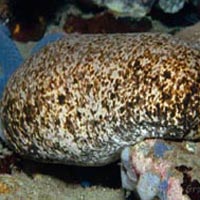 Smart Citations
Smart CitationsSee how this article has been cited at scite.ai
scite shows how a scientific paper has been cited by providing the context of the citation, a classification describing whether it supports, mentions, or contrasts the cited claim, and a label indicating in which section the citation was made.
GC-MS analysis and antibacterial activity of the Sea cucumber (Muelleria lecanora) extract
Sea cucumbers are marine invertebrates commonly found in benthic areas and deep seas. On a global scale, they have a high commercial value with an increased level of production and trade. This study aims to analyze the bioactive compound in Sea cucumber (Muelleria lecanora) using the Ultrasound-Assisted Extraction Method (UAE) and Gas Chromatography- MassSpectrometry (GC-MS). Furthermore, it identifies the antibacterial activityin microorganisms Salmonella, Escherichia coli, and Staphylococcus aureus. The bioactive compounds were extracted using methanol, acetone, and n-hexane solvent and were separated by ultrasound-assisted extraction. In the initial stage, phytochemicals were screened using Gas Chromatography-MassSpectrometry (GC-MS). Disc diffusion method was then used to determine theantibacterial activity against Salmonella, Staphylococcus aureus, and Escherichia coli. The results showed that methanol extract is more suitable for extracting bioactive compounds of Muelleria lecanora than acetone and n-hexane. Meanwhile, acetone solvents are more suitable for the production of flavonoid and steroid compounds than Mulleria lecanora samples. Heneicosane compounds that function as a new antiproliferative for inhibition of tumor and cancerous cells are produced from n-hexane. The antibacterial activity of acetone, methanol and n-hexane extract determined by diffusion assay was effective against Staphylococcus aureus and Salmonella but ineffective against Escherichia coli. GC-MS results showed that the major constituents obtained were steroid and flavanoid. From this study, Sea cucumber extract can be considered a healthy nutrientin food and pharmaceutical products.
How to Cite
PAGEPress has chosen to apply the Creative Commons Attribution NonCommercial 4.0 International License (CC BY-NC 4.0) to all manuscripts to be published.

 https://doi.org/10.4081/jbr.2021.9765
https://doi.org/10.4081/jbr.2021.9765





